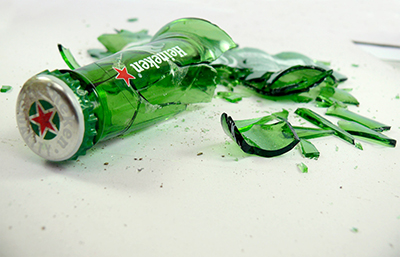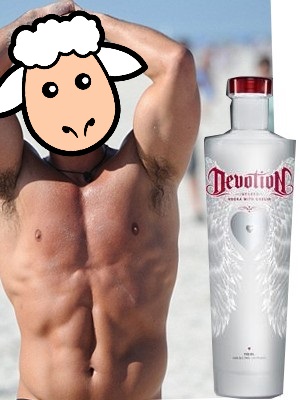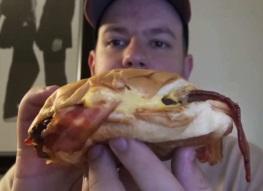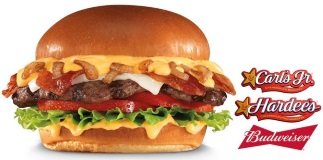In the Doghouse
Heineken Receives Small Punishment for Big Violation
 Last week, Heineken was forced to pay the piper in a blatant violation of the three-tier system that governs California alcohol sales. Lucky for them, the piper didn’t ask for much.
Last week, Heineken was forced to pay the piper in a blatant violation of the three-tier system that governs California alcohol sales. Lucky for them, the piper didn’t ask for much.
According to California Alcohol Beverage Control (ABC), the brewer was running a Facebook- and Twitter-based marketing scheme wherein consumers registering with Heineken were given coupons redeemable for a free beer at specific establishments. The problems were many and evident. Facebook and other social media outlets are extremely popular with younger users. Despite the potential to draw an underage audience, “age gates” (e.g. prompts to enter a date of birth) are difficult to implement on social media sites, and even if a clickthrough to the company website were required, they are comically easy to circumvent. Although the retailers were obligated to verify age when redeeming the coupons, that put them in the unenviable position of trying to take away the free beers Heineken already handed out.
As opportunistic and harmful as this sort of unfettered access to the youth market seems, ABC’s concerns were more fundamental. By running the promotion alongside specific, named retailers, Heineken violated the three-tier system which maintains that distributors serve as the gateway between brewers and retail outlets. This system prevents manipulation of markets, protecting consumers and promoting competition. Protecting its integrity is essential to regulatory organizations, and ABC acted decisively on its principles.
Of course, the decisive act amounted to a $30,000 fine. Since A-B InBev and SABMiller merged this summer, Heineken has become the second largest brewer in the world. They spent well over $150 million in marketing last year, with at least 25% of that being dedicated to digital campaigns. Proportionally, if they had spent $20 on their marketing, they would’ve been fined a about a cent and a half. (By comparison, Greece recently fined Athenian Brewery—Heineken’s subsidiary in that country—the equivalent of $33 million for unfair business practices.)
The three-tier system has been around since the repeal of Prohibition, so Heineken must have known they were stepping out of line. Fortunately, ABC was there to throw the book at them. Too bad they were only allowed to toss a paperback.
Devotion Vodka's Transparency Hides Its Poisonous Product
 Devotion vodka is hiding something behind its nutrition label—the alcohol. They're very up front about the 96 calories per serving, and certainly proud of the 0g of sugar and cholesterol. In that "healthfulness," Devotion joins Michelob and a growing host of other alcohol companies to tout the healthfulness of their booze. Devotion CEO Drew Adelman touts the brand's status as "the first company in a large pool of brands to feature a nutrition label on our bottles, ‘baring all’ with pride," according to MediaPost Agency Daily. But all of this hides the fact that alcohol-related harm has never derived from sodium, sugar, cholesterol, trans-fats, FODMAPs, or anything like that. Alcohol-related harm has always derived... from alcohol.
Devotion vodka is hiding something behind its nutrition label—the alcohol. They're very up front about the 96 calories per serving, and certainly proud of the 0g of sugar and cholesterol. In that "healthfulness," Devotion joins Michelob and a growing host of other alcohol companies to tout the healthfulness of their booze. Devotion CEO Drew Adelman touts the brand's status as "the first company in a large pool of brands to feature a nutrition label on our bottles, ‘baring all’ with pride," according to MediaPost Agency Daily. But all of this hides the fact that alcohol-related harm has never derived from sodium, sugar, cholesterol, trans-fats, FODMAPs, or anything like that. Alcohol-related harm has always derived... from alcohol.
This is not Devotion's first attempt at cornering the "healthy booze" market. Alcohol Justice featured them on the front page of its 2011 report on Questionable Health Claims by Alcohol Companies" after it infused its product with protein and a casein (a body-building supplement). Despite the enthusiastic support of renowned fitness icons like Jersey Shore's Mike "The Situation" Sorrentino, the brand has now pivoted away from the physical fitness angle and towards an earthier health consciousness. Now billed as sugar-free, gluten-free, non-GMO, and American-made, Devotion seems to be striving to reach the patriotic organic farmer with Celiac disease.
Yet the ultimate problem remains: Devotion is highly distilled alcohol. According to the NIAAA, alcohol's toxic effects on the body include: damage to the heart muscle, elevated blood pressure, fibrosis and cirrhosis of the liver, inflammation of the pancreas, weakened immune system, and increased risk for cancers of mouth, throat, liver, and breast. Ironically, there is little evidence that vodkas—even grain vodkas—contain any gluten in the first place. Alcohol itself causes a number of acute digestive problems, including GI pain, inflammation, bowel issues, and inhibited nutrient absorption, which are similar to those attributed to gluten. But if Devotion is to be believed, stomach pains are due to pizza crust, not the caustic, clear organic poison called alcohol. By tying itself to the values of simplicity and transparency, Devotion is pulling the wool over its customers' eyes.
Hardees/Carl’s Jr. Pushes Budweiser® Beer Cheese Bacon Burger
 Fast Food/Beer Co-Marketing Targets Youth
Fast Food/Beer Co-Marketing Targets Youth
On October 27, 2016, sister fast food chains Carl’s Jr. and Hardee’s rolled out the Budweiser® Beer Cheese Bacon Burger, going beyond questionable nutrition into the promotion of alcohol-based harm. Co-branding fast food with Budweiser is irresponsible and dangerous. On any given day, over a third of all children and adolescents—from age 2 to age 19—have eaten at a fast food restaurant. That number may be even higher in young adults; according to a 2013 Gallup poll, 57% of 18 to 29 year-olds consumed fast food at least weekly.
According to the National Institute on Alcohol Abuse and Alcoholism, adolescents and young adults are extremely vulnerable to alcohol-related harms, both behavioral (e.g., drunk driving) and developmental (e.g., laying the groundwork for later alcoholism). So if youth and young adults are going to seek out fast food restaurants, prominently exhibiting beer logos further normalizes drinking, even building the expectation that a meal ought to be accompanied by alcohol.
Moreover, in this instance, the co-branding may give AB InBev (the makers of Bud)—and any global alcohol corporation that follow its lead—an excuse to overstep voluntary industry guidelines and/or local restrictions against youth marketing. Billboards for these alcohol-branded products could easily be placed in close proximity to schools and other youth-centered locations, since it’s "really" just an advertisement for a burger.
The Hardees/Carl's Jr. CEO, Andrew Puzder, who cynically employed this partnership, may well be promoted to Trump's Cabinet. A little over a month after his chains released the Budweiser® Beer Cheese Burger, Puzder was picked for Labor Secretary by President-Elect Donald Trump.
 There are suggestions that this outreach to vulnerable youth is intentional on behalf of Puzder. In the past, Hardee’s/Carl’s Jr. has been notorious for running overtly exploitative ads linking highly sexualized women to their products. When challenged by Entrepreneur, Puzder insisted the ads were “an appeal to youth, so it really reaches a broad demographic.” Studies on underage drinking show that no other brand is as often implicated in binge drinking as Bud. If the company is unapologetically conscious of the appeal sex has to an underage audience, it’s hard to give them a pass on the appeal of booze.
There are suggestions that this outreach to vulnerable youth is intentional on behalf of Puzder. In the past, Hardee’s/Carl’s Jr. has been notorious for running overtly exploitative ads linking highly sexualized women to their products. When challenged by Entrepreneur, Puzder insisted the ads were “an appeal to youth, so it really reaches a broad demographic.” Studies on underage drinking show that no other brand is as often implicated in binge drinking as Bud. If the company is unapologetically conscious of the appeal sex has to an underage audience, it’s hard to give them a pass on the appeal of booze.
"This nefarious co-branding co-mingles hamburgers designed for youth with a product that should never be marketed to youth," said Bruce Lee Livingston, ED/CEO of Alcohol Justice. "We urge our members and colleagues to contact their members of Congress to condemn this deliberate and reckless disregard for youth, public health, and safety. While Alcohol Justice is not offering an opinion on Puzder's cabinet appointment, this is a golden opportunity for Congress to question him for his motives behind marketing alcohol taste and sexism via youth-oriented fast food.”
TAKE ACTION: Tell Congress that marketing beer through fast food is a bad idea.
Top photo: food blogger Matt Zion, via Grubstreet.
More Articles ...
Help us hold Big Alcohol accountable for the harm its products cause.
| GET ACTION ALERTS AND eNEWS |
STAY CONNECTED    |
CONTACT US 24 Belvedere St. San Rafael, CA 94901 415-456-5692 |
SUPPORT US Terms of Service & Privacy Policy |


